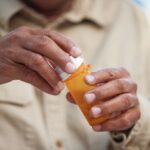
At first glance, you may think the initial stages of drug and alcohol treatment are the most challenging part of getting clean and sober. Once someone “graduates” from rehab, they must have recovery figured out and it’s smooth sailing from then on, right?
Wrong!
Life after leaving rehab can be very challenging for addicts who are new to recovery. Relapse prevention needs to be a priority during this time.
Why the First Few Weeks After Leaving Treatment Are Dangerous
When an addicted person goes to a residential drug and alcohol treatment center, he gets plenty of support at the facility. The schedule includes counseling, 12-step meetings, and recreational activities.
Meals are provided on a regular schedule. Clients get up and go to bed at the same time each day. Even leisure time is put on the schedule. When clients need extra support, they can access the help they need quickly.
Once the initial phase of treatment is finished, clients have developed some skills for relapse prevention. However, they must learn to use them independently without 24/7 support. For this reason, the first few weeks after leaving treatment can be especially challenging for someone new to recovery.
How to Prevent Relapse After Leaving Treatment
No strategy will guarantee that someone new to recovery will avoid a relapse, but these suggestions can help prevent problems after leaving treatment.
1. Continue Attending a 12-Step Program
Completing a treatment program doesn’t mean the end of going to 12-step meetings. Alcoholics Anonymous, Narcotics Anonymous, and other programs meet across the US to offer support to members. In many cities, you can find meetings every morning, afternoon, and evening.
2. Stick to a Regular Schedule
It’s important to continue the practice of a regular schedule started during the treatment program. This includes taking meals at the same time every day and getting enough sleep.
When people become overtired or skip meals, they are more likely to be irritable or short-tempered. During these times, it’s easier to make snap decisions that aren’t necessarily very healthy, such as choosing foods that are higher in fat, sugar, and salt. It may also make resisting cravings more difficult.
3. Avoid Large Blocks of Unfilled Time
Boredom is an enemy, especially in the early stages of recovery. Unfilled time allows the person in recovery the chance to think about “the good old days” before treatment. She may even start remembering the time when she was drinking or using as something different from the reality, i.e., not as bad as it was. These kinds of nostalgic thoughts can be enough to trigger a relapse for some people.
4. Keep a Gratitude Journal
If using drugs and alcohol was a way to anesthetize against strong feelings, keeping a gratitude journal is a way to learn how to get in touch with emotions again.
Each day, write down five or more items that are a source of gratitude. Examples could be something as simple as another day of continued sobriety, feeling grateful for the first cup of coffee in the morning, enjoying the feel of sunshine on your face, or having the support of family and friends during your recovery.
5. Explore Ways to Have Fun
During the cycle of active substance abuse, using drugs and alcohol becomes the main activity in the affected person’s life. It’s not uncommon for him to stop spending time on pastimes that he previously enjoyed.
The early days of sobriety are a good time to rediscover old hobbies and find new enjoyable activities. This is a wonderful way to relieve stress, make new friends, and rekindle relationships with family members.
Relapse Prevention at English Mountain Recovery
English Mountain Recovery offers a relapse prevention program to its clients, along with flexible inpatient drug and alcohol treatment to support their individual needs. Call today to learn more about how we can help you or your loved one take the first steps towards recovery.
By Jodee Redmond



